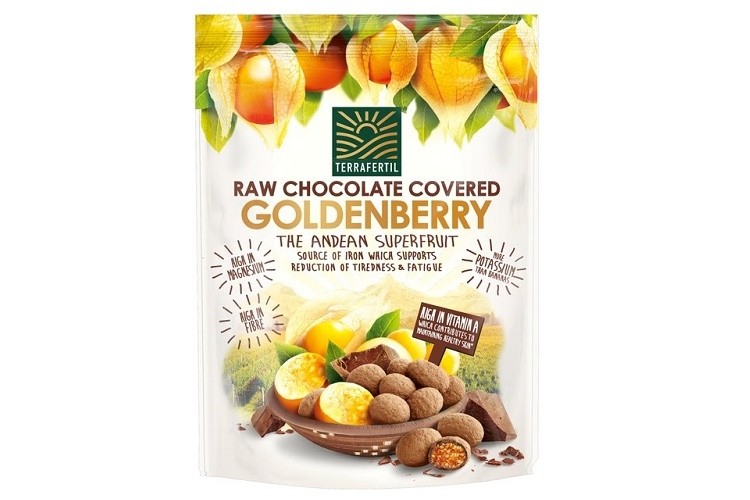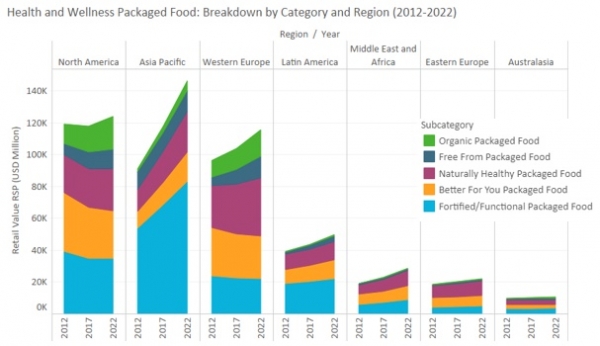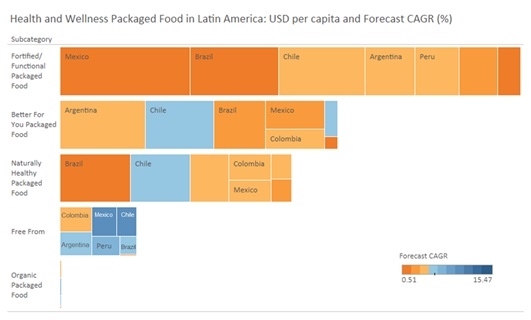Nestlé completes Terrafertil deal – they've secured organic supply 'instantly', say analysts

Initially announced back in February, Nestlé received the nod for the deal from relevant anti-trust authorities earlier this week. Under the deal, Terrafertil will continue to operate independently, managed by two of its original founders.
Established in 2005 as a natural foods company, Terrafertil is best known for its Nature's Heart brand – one of the largest natural brands in Latin America – and more recently its organic, vegan brand Essential Living Foods that it acquired in February. Specialized in goldenberries or Peruvian groundcherries that are touted as 'The Andean superfruit', Terrafertil also produces chia seeds, spirulina, organic cacao powder and organic wheatgrass powder, among others.
Laurent Freixe, CEO of Nestlé Zone Americas, said: “Consumers these days are increasingly looking for organic and natural food with high nutrient content. We are delighted to have Terrafertil as part of the Nestlé family as we believe that they have built an exceptional foundation in providing consumers with a wide range of high-quality, modern nutrition products. This investment allows Nestlé to strengthen its presence in fast-growing categories, such as healthy plant-based foods, beverages and snacks.”
'It's mainly for sourcing'
Maartje van den Berg, senior analyst for Consumer Foods at Rabobank, said the deal was clearly strategic supply move.
“You could see the acquisition as securing supply in the organic value chain,” Van den Berg told FoodNavigator-LATAM. “I do think that for Nestlé, it's mainly for sourcing; the advantage is the access to the ingredients, not so much the Terrafertil brand. That's my thoughts.”
Maria Mascaraque, senior analyst at Euromonitor International, agreed: “The acquisition of Terrafertil allows Nestlé to expand into the plant-based category, acquiring the organic supply chain instantly. ...For me, the most relevant feature of Terrafertil is that the majority of its portfolio is organic.”
Van den Berg said Nestlé had recently made several moves to advance into the organic space - launching organic certified oats in Brazil; organic infant formula in the UK; and an organic baby food and coffee range in Spain.
“If you zoom out a little bit, [the Terrafertil deal] does fit into this broader move which they're making into health; baby and family-orientated products in specific countries; and also securing their supply chains.”
Organic and 'closer to home'
Van den Berg said it was likely Nestlé would use Terrafertil's ingredients in ongoing product development in organics, especially for Latin America.
“For consumers that buy organic, the local element in food is also often important. So, Nestlé might actually use them for their new Latin American products – keeping the ingredients closer to home because it's a local, native product that may appeal to the local, wealthier consumers,” she said.
Mascaraque agreed there were significant opportunities to develop organic in Latin America.
“If we compare the organic segment in Latin America with that in North America and Western Europe, we can see that it is tiny,” she said.
When looked at closer, within the context of Latin America's wider health and wellness category, she said whilst organic remained a niche it was “delivering a lot of growth”, together with free-from foods. “There is a lot of room for innovation in this space,” Mascaraque said.
'One step ahead in the food revolution'
Fabiola de la Portilla, leader of Thought Leadership Latin America at Nielsen, said in the context of rising concerns around obesity and overweight in the region, Nestlé's deal was a smart move.
“From my point of view, this acquisition is positioning Nestlé one step ahead in the food revolution which has been happening in Latin America in recent years,” De la Portilla said.
Latin American consumers, she said, were increasingly concerned about health problems and often looked to local, fresh and organic foods in response.
According to Nieslen, 75% of LATAM consumers want to change their diet to take care of their health; 80% make dietary choices to help prevent certain health conditions; and 62% will pay more for foods that promote health benefits.
“These products – plant-based, organic, natural etc. – are more expensive than the average in Latin America and not all the population can pay for them, however, if they have the money, these new ingredients are a powerful purchase detonator for a very profitable, niche market in Latin America,” De la Portilla said.













